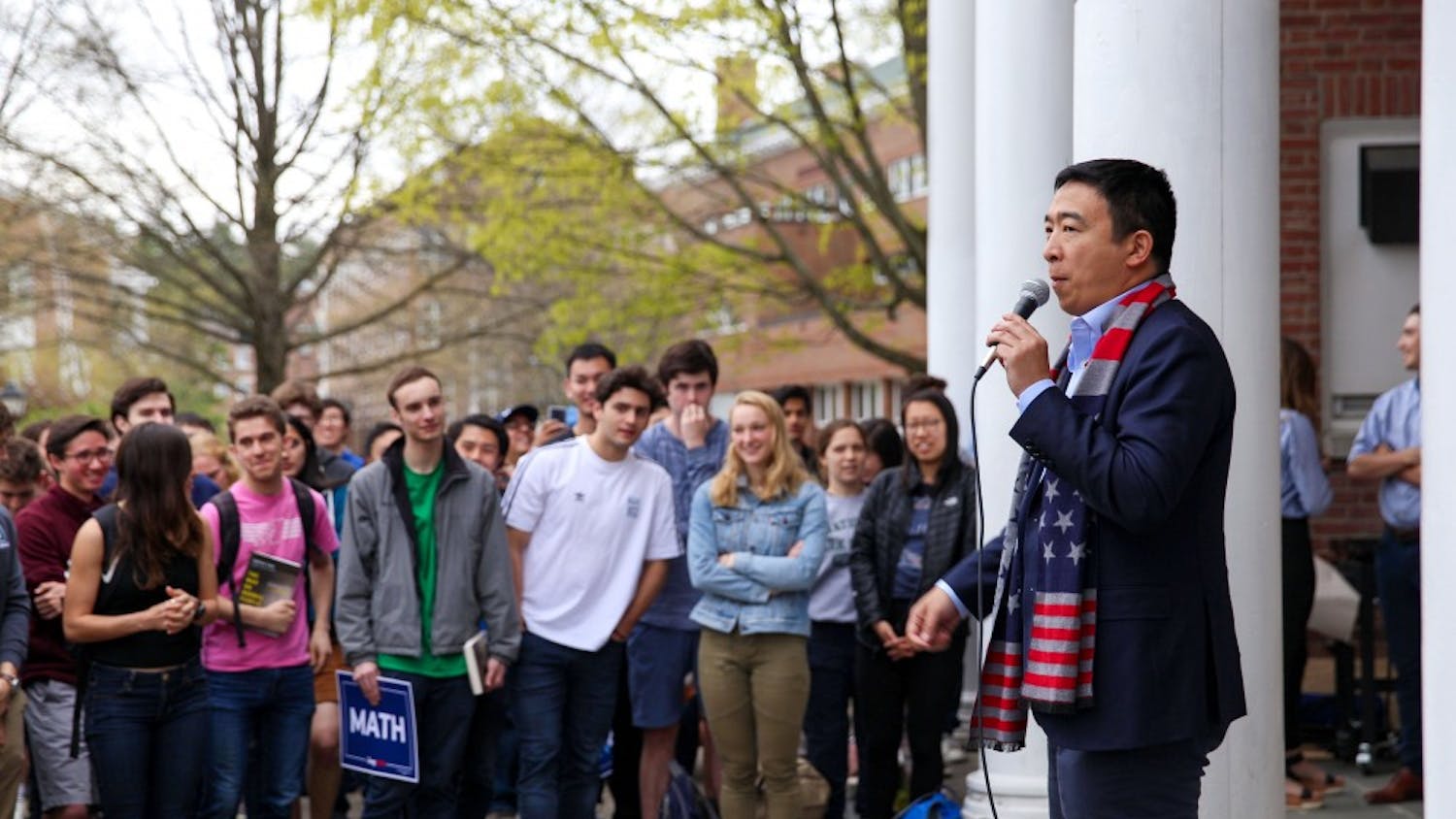When my mother first heard about presidential candidate Andrew Yang and his $1,000-a-month plan, she immediately joined the “Yang Gang.” I asked how she was so certain about her vote, and she replied: “How often do you see a Chinese man running for president?”
Over the past two years, Yang has risen in status from a businessman with no political experience to a potential contender for the Democratic presidential nomination. He has a die-hard following — including the likes of Sam Altman, Nicolas Cage and Noah Centineo — that helped him raise an impressive $10 million in the third quarter to qualify for the fifth Democratic debate. He has also written three books, attended Columbia Law School and founded the non-profit Venture for America.
Although Yang seems perfect on paper, he is not meant to be our 46th president. My issue with Yang does not lie with his policy or credibility, but rather, his legacy. As America’s first major Asian American presidential candidate, Yang has consistently failed to fulfill his role as a trailblazer for young Asians seeking to make headway in a homogeneous political sphere.
Yang often uses his Asian heritage to tout his immigrant story, but then caters to his non-Asian audience by using one-liners that enforce Asian stereotypes. During the 2019 Asian American Pacific Islanders Democratic Presidential Forum, Yang attempted to connect with Asian voters as the son of Taiwanese immigrants. He mentioned that he “felt that his spot in this country was somewhat in question,” especially when classmates called him “chink” and “gook”. Instead of using the reliability of struggling for acceptance to unite fellow Asians, Yang proceeded to declare that, “the opposite of Donald Trump is an Asian man that likes math.”
Unfortunately, Yang fails to realize that he cannot both play the victim — by detailing slurs used against him — and the victimizer — by using racist jokes to perpetuate Asian stereotypes. Not only is Yang enforcing the stereotype that Asians excel at math, but he is also reducing his entire identity to “an Asian man.”
Some would argue that it is socially acceptable to use stereotypes within your own race; I can support that. However, Yang has used this same line in numerous debates and has even extended the scope of the line to Medicare; in the third Democratic debate he told Americans, “I am Asian, so I know a lot of doctors.” Additionally, he has boasted that he has run one of the “nerdiest campaigns in presidential history.” Hearing these televised statements come from a member of the Asian American community sends a poor message to the rest of society: If we make fun of ourselves, what is to stop others from doing so as well?
Nothing. In fact, Andrew Yang was the inspiration for one of comedian Shane Gillis’ podcasts, where he called Yang a “Jew chink” and mocked the accents of Chinese restaurant workers. Gillis issued an apology on Twitter, stating that he “was happy to apologize to anyone who was offended by what he said.” He justified his actions with the excuse that he was “trying to be the best comedian he could be” and that “required risks.” Gillis’ apology was weak and shyed him away from taking responsibility for his words; however, it was Yang’s response that was the biggest letdown for the Asian American community. Instead of pointing out Gillis’ mistakes and uniting with other Asians, Yang turned extended his forgiveness and called for Gillis to be reinstated as a Saturday Night Live member.
The sad truth is that if Gillis had used the n-word to refer to an African American presidential candidate, the negative responses against Gillis would be swift and immediate. If Asian Americans are ever going to reclaim the words “gook” and “chink” for themselves, it is up to political figures like Yang to speak out and correct those who insult the community. It seems to me that Yang is too concerned about tending to his political career, leaving Asian Americans feeling alienated and unrepresented.
I must admit that Yang has a heavy burden to carry. In the 116th Congress, there are currently 20 members — 3.7 percent — who identify as either Asian American, Indian American or Pacific Islander American. Regardless of Yang’s self-deprecating comments, his campaign will inspire other young Asian Americans to run for office. He has to combat the “model minority” perception that Asians are silent, agreeable and thus easier to take advantage of. But we must remember that the only way we will be able to increase our representation in Congress and shed our image as a model minority is by speaking out against Asian stereotypes — something Yang has yet to do. Is Yang the best person we can put forward to represent our history and values? Sorry #YangGang, but I do not believe so.


